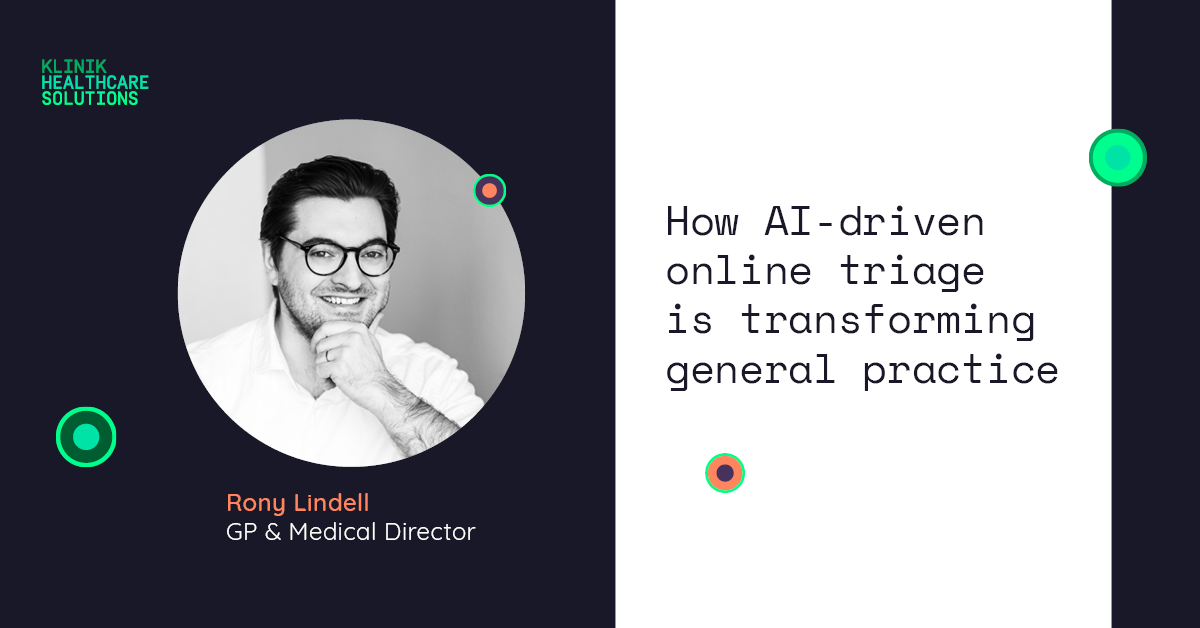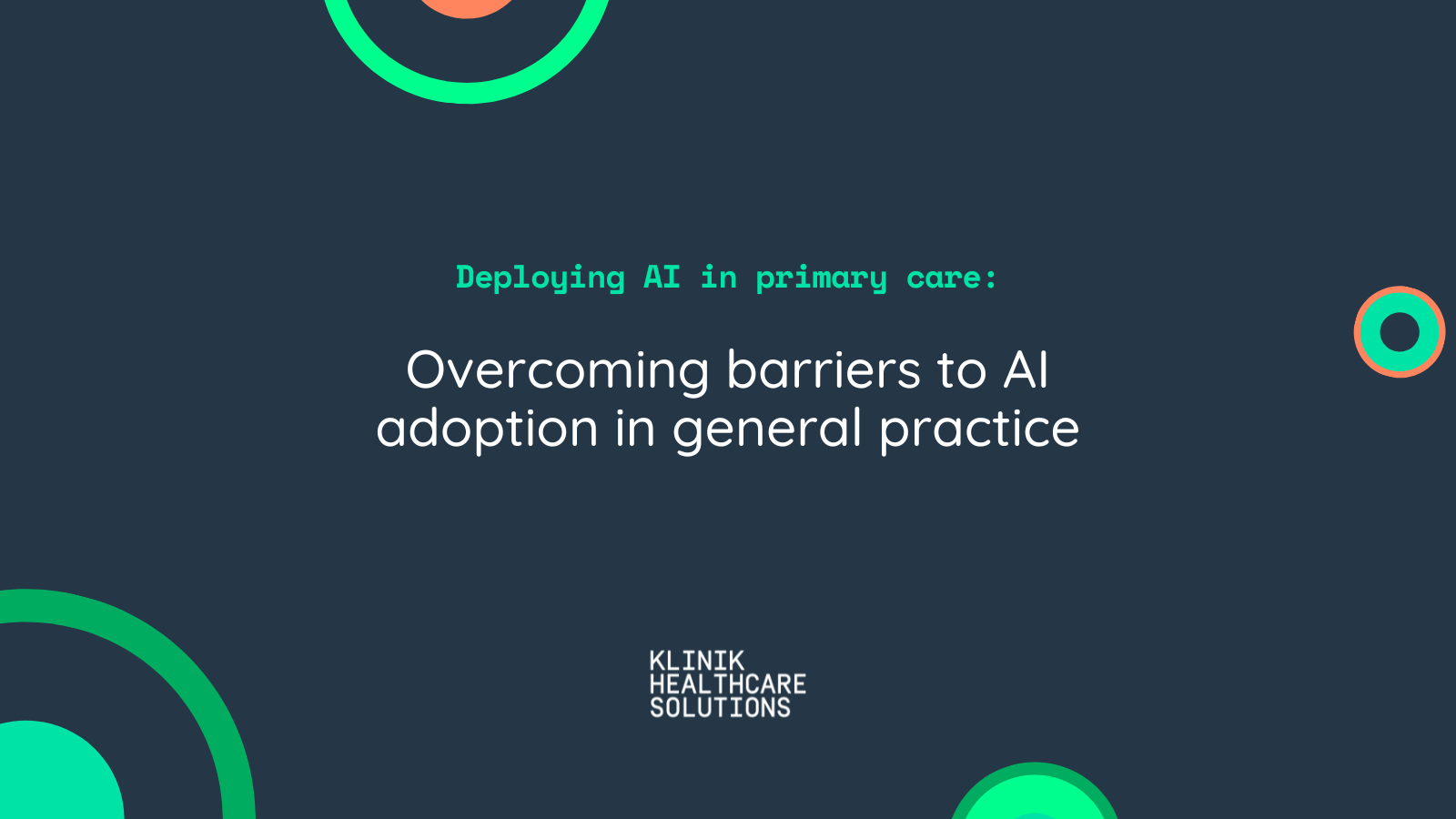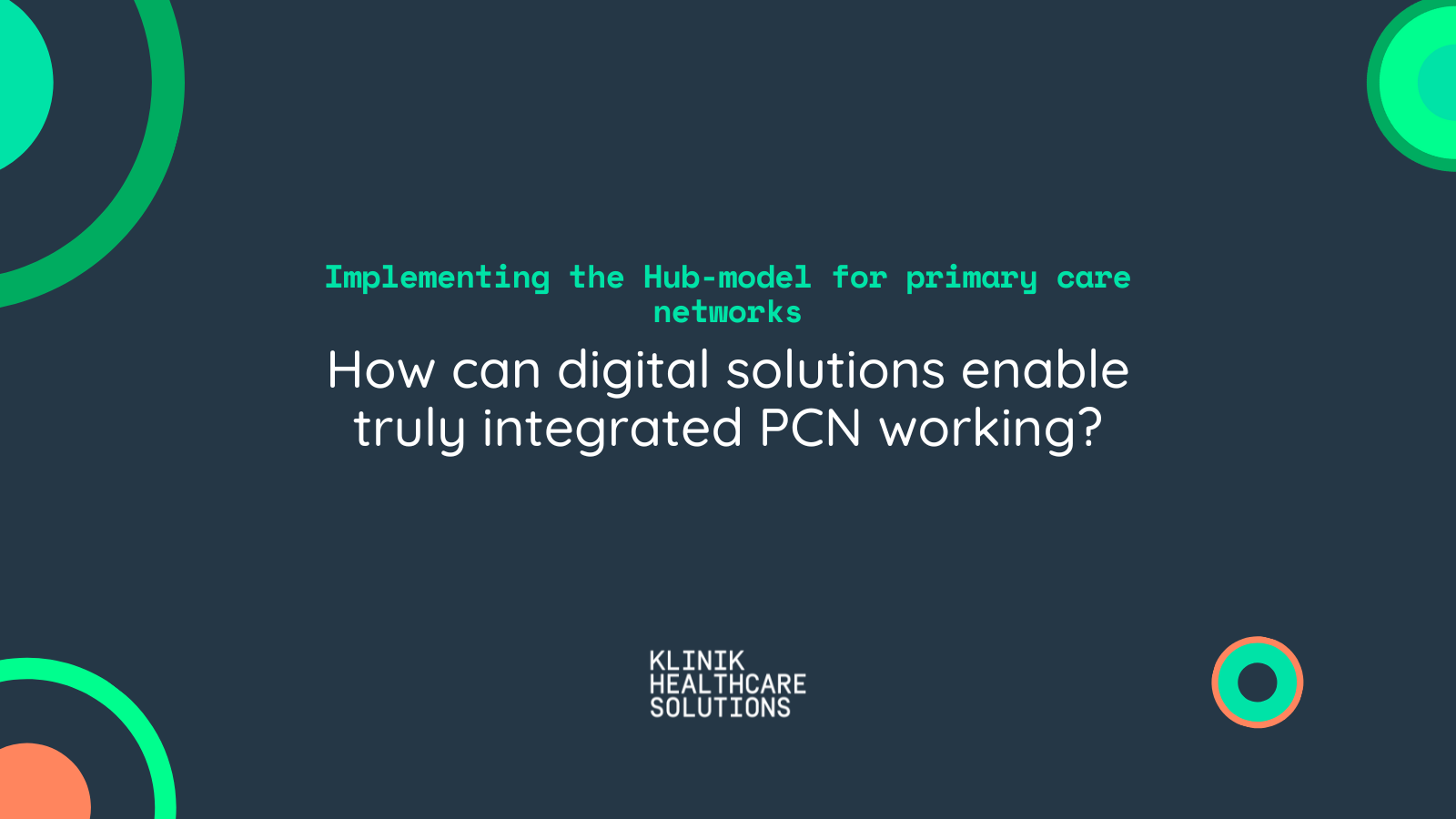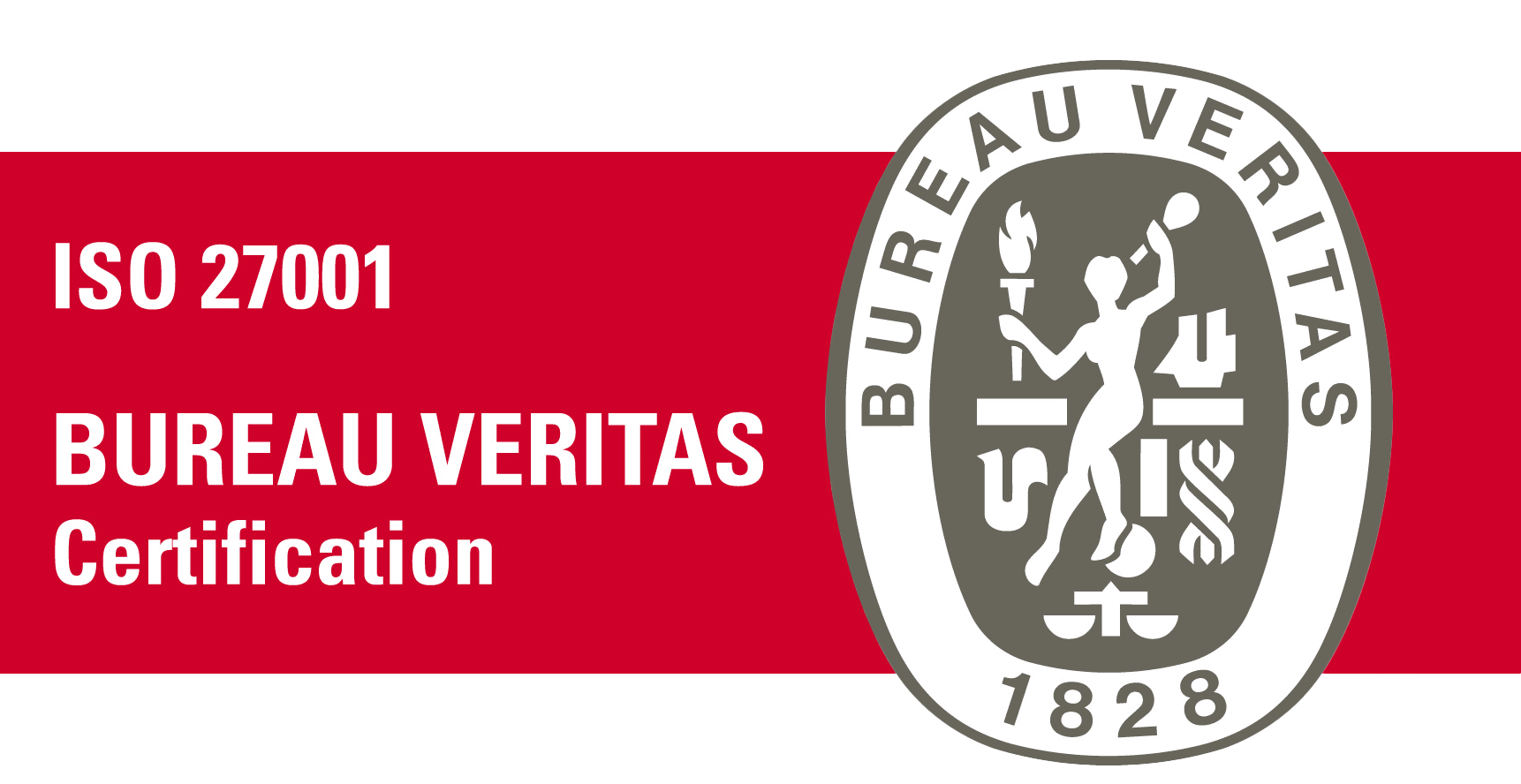How AI-driven online triage is transforming general practice

Klinik’s use of AI is key to its ability to help GPs manage demand using online triage. Klinik’s Medical Director and practising GP Rony Lindell explains why.
We are at the beginning of exciting times for the use of AI in general practice. More and more doctors are seeing the benefits of using a medical AI system.
Here, GP Rony Lindell reveals how Klinik is unlocking a world of possibility for general practice to meet his immediate needs, and is providing a platform for the future of care:
Digitising primary care for more effective decision making
‘Klinik digitises the contact process, which usually saves time and makes things more flexible for the practice and the patient.
‘The AI asks dynamic questions based on the information provided by the patient, following the history-taking approach carried out by a clinician.
‘Klinik’s online triage system then gives a preliminary assessment and flags up those who might need urgent care. It also identifies potential diagnoses and suggests possible treatment options, including self-care.
‘Triage staff then makes the decision on how best to respond to the patient. The AI helps give them confidence that they have not missed any urgent cases, and helps in how they choose to respond.
‘Practice staff can transfer the case to the right member of the practice team or group, using Klinik’s patient flow management technology. Some practices have an acute team, for example, who look at urgent cases. Others use admin teams for routine non-clinical enquiries.
‘External service providers, such as out-of-hours, can be part of this extended team. The plan is to form an ‘intelligent healthcare network’ that is based around patient needs.’
Convenience and face-to-face care can sit side-by-side
‘Klinik’s online triage technology makes it more convenient for me as a GP. Richer patient information and the ability to work remotely makes my work more effective. I can see more patients, and I don’t think I lose anything as a result.
‘In Finland, we are seeing an increase in the number of face-to-face appointments, but without the controversy seen in the UK. This may be because the triage system in Finland is different from that in the UK.
‘In Finland nurses make the first patient assessment. They then agree with the patient if they need to see a doctor. Patients still have a lot of influence over how they are seen, but they are more used to being told how they will be seen.
Our philosophy at Klinik is that we don’t try to minimise the number of face-to-face appointments. We enable patients and clinicians to agree what appointment is best for their needs. For many, remote care is the better option, and information analysed by the AI gives staff the correct information and recommendations to help them make the right decision.
Using data to transform primary care
As with the UK, GPs are becoming more interested in AI and data-driven care. We are continually using the data unlocked by Klinik’s system to improve how we support GPs.
We actively measure how our AI better reflects clinical decisions and outcomes, under the clinical supervision of our medical team and with the input of end users.
We are exploring how to improve the unity of the AI with clinical decisions in areas with the highest impact. In musculoskeletal care for example, we are looking at how accurately the AI assessment matches the clinician’s choice of action, using validation sets and manual review.
We are also comparing outcome measures. This looks at how the care provided compares to the care recommended by the AI. Already in use in Finland for physiotherapy and mental health, we are doing this in the UK to support first contact physiotherapy practitioners.
What sets Klinik apart from other online triage technology
Our AI is the main differentiator to other similar systems. Klinik uses an adaptive, medically informed assessment that can be universally applied, with care redirection tools that can be localised around available services.
This makes it very scalable; Klinik’s online triage system can be used for a small practice with just a handful of services - or it can be used for entire networks, with hundreds.
Our AI is vital in making online triage as dynamic and reflective as possible in everyday clinical care. By optimising the history taking process, decision-making is quicker, more convenient, and in keeping with clinical workflow.
Yet we are just at the beginning of the story. As doctors, we have been using such systems for some time. We can understand what the limits and benefits of AI are, and how we can use this technology safely.
So whilst there is no longer the leap of faith there once was, we have yet to see the full potential of AI. With flexible patient flow functionality and a belief in safety by design, Klinik’s use of AI can help all of us involved in primary care to improve the service and patient care we provide.
Contact us to arrange a demo of how your practice could benefit from Klinik’s online triage solution.








